趋势与洞察
Why Google Results Control Your Reputation When people want to learn about you or your business, they don’t ask you directly — they Google you. A single search result can mean the difference between: Winning or losing a client. Closing or missing an investment deal. Being trusted or being doubted. In today’s world, Google is your first impression. And when negative content shows up — whether it’s a bad review, a defamatory article, or an embarrassing old post — it can feel like your reputation is being hijacked. That’s why millions of people search for terms like “remove content from Google” or “delete Google results.” The problem? Google doesn’t make it easy. This guide gives you a step-by-step framework to understand your options, protect your name, and take back control. Step 1: Understand What Google Can (and Can’t) Do Before learning how to remove Google search results, it’s crucial to understand how Google works. Google doesn’t own the content: It simply indexes web pages published on other sites. Two main strategies exist: Remove at the source (delete the content where it was published). Remove from Google’s index (de-index it so it won’t show in search results). 👉 If the content is deleted at the source, Google will automatically update. But if it remains live, you’ll need to request a removal from Google (which only applies in specific cases). Step 2: Identify the Type of Negative Content Different types of harmful results require different strategies. Let’s break them down: 1. Defamation False statements that harm your personal or business reputation. Example: A blogger writes that you scammed clients without evidence. 2. Copyright Infringement Someone stole your images, text, or videos. Example: A competitor copies your website and publishes it. 3. Personal Information Exposure Doxxing, revenge porn, or exposure of addresses, phone numbers, bank accounts. Example: A forum publishes your private details. 4. Fake Reviews or Complaints Competitors or anonymous attackers leave fake reviews. Example: 1-star Google Business reviews from accounts that never used your service. 5. Negative Press or News Coverage News articles, blogs, or opinion pieces that damage your reputation. Example: An old article resurfaces about a legal dispute, even after it’s resolved. Step 3: Attempt Removal at the Source (Most Effective) The gold standard is to delete the content where it lives. How to Remove at the Source: Find contact information: Look for a “Contact Us” page. Use WHOIS lookup if the owner is private. Request removal politely: Be professional and clear. Explain why it should be removed (e.g., false, outdated, violating rights). Escalate legally if needed: Send a legal demand letter. File a DMCA takedown for copyright. Engage an attorney if it’s defamatory. 💡 Pro Tip: When content is deleted at the source, it’s the fastest and cleanest solution. Google will automatically remove it when it re-crawls the site. Step 4: File a Removal Request with Google If source removal isn’t possible, your next option is Google’s own removal tools. Google Offers Removals For: Outdated Content Tool: If the page is deleted but still shows in search. Legal Removal Requests: For defamation (in certain jurisdictions), copyright, and sensitive personal info. Revenge Porn & Explicit Imagery: Google prioritizes urgent takedowns for non-consensual media. Financial or ID Information: Bank details, ID numbers, or hacked data. 👉 Submit requests via Google’s Content Removal page . Be aware: Google will not remove content simply because it is negative. It must violate a policy or law. Step 5: Suppress Results When Removal Isn’t Possible Some content simply cannot be removed — for example, accurate news articles or protected opinions. In those cases, the strategy shifts to suppression. What Suppression Means: Suppression = pushing negative results off page one by ranking positive, optimized content above them. Suppression Tactics: SEO for owned assets: Optimize your website, blog, and social media profiles. Content creation: Publish articles, press releases, interviews, YouTube videos, podcasts. High-authority platforms: Build LinkedIn, Crunchbase, Medium, Quora, and other strong profiles. PR & media coverage: Secure features that rank in Google News and top publications. Since over 90% of users never click past page one, pushing harmful content to page two makes it practically invisible. Step 6: Ongoing Monitoring and Protection Reputation management is not a one-time fix. New threats can appear anytime. How to Stay Protected: Set Google Alerts for your name or brand. Track reviews across Google, Trustpilot, SiteJabber, etc. Use professional monitoring services to get alerts and immediate takedown action. At ContentRemoval.com, we provide continuous monitoring and monthly removal services so you’re never blindsided by sudden attacks. Step 7: When to Hire a Professional Some removals are straightforward. Others — like fighting with major news publishers, suppressing viral Reddit threads, or negotiating with review platforms — require expert intervention. Professional content removal experts can: Navigate Google’s complex policies. File successful DMCA, defamation, and privacy removals. Negotiate directly with publishers. Combine legal, SEO, and PR strategies into one solution. If your reputation, business revenue, or peace of mind is at stake, hiring a professional is the fastest, most reliable way to protect yourself. Case Studies (Proof Section) Case Study 1: Entrepreneur Attacked Online Problem: 42 defamatory blog posts damaging credibility. Solution: ContentRemoval.com secured takedowns on 31 and suppressed the rest. Result: Entrepreneur rebuilt reputation and closed $3M funding round. Case Study 2: CEO with Negative Press Problem: Old news coverage ranking on page one. Solution: 90-day SEO + PR campaign. Result: Positive stories ranked, pushing the negative to page three. Case Study 3: Company Flooded with Fake Reviews Problem: Competitor attack using fake Google reviews. Solution: Removal requests + review platform escalation. Result: 85% of fake reviews deleted, average rating restored. Taking Back Control Your online reputation is one of your most valuable assets. Negative Google search results don’t have to define you. Best case: Remove content at the source. Next best: File a removal request with Google. If all else fails: Suppress the results with SEO and content. 👉 The longer harmful results stay online, the more damage they cause. That’s why ContentRemoval.com exists: to help people like you remove, suppress, and protect their online reputation with proven strategies.

If you own a business in today's modern world, you know that it's no longer a question of whether you have an online presence or not. It's now a matter of what that online presence is. You need to know how people perceive your brand and whether that perception matches the one you want established. It's not wise to just let things fall where they may when your online reputation is involved. Businesses can't just let other people determine what their brand is, they should be the one on top of it controlling the narrative.

One of the most important assets of any small business is its reputation - stakeholder opinion can be a driving force when it comes to establishing the value of your brand in the marketplace. As consumers continue to enjoy unlimited access to information and unprecedented freedom of expression online, it seems that Reputation Management has taken on a heightened level of importance for small business owners.

An article posted attacking you as a person, whether or not these statements are true, can be extremely damaging to your reputation. Imagine applying for a job and your recruiter seeing an article written about you by someone who had the intention of bringing you down. This would not only hurt your application but also perhaps be scrapped altogether because of how important an online reputation is.

Managing to separate and maintain their public and private life is one of the many habits that stars need to develop. One of the many downsides of being a celebrity is that it’s much harder to maintain their privacy. Because of this, they’re more prone to threats and attacks from malicious individuals who want to dig through their personal life.

The Internet has opened a world of convenience for the modern consumer, yet it could turn into a cruel space when you gain negative feedback. With just a simple comment from a customer, your online brand can crumble - don’t let this happen to you. Click here to find out our 5 tips on how you can solve these issues.

The internet is a place where you can find almost anything you can think of. Because your privacy can be compromised in the online world, it's always better to be extra cautious when posting things on the web—especially on your social media profiles! Each post you make reflects you, your job, your beliefs, and your identity. Whether it’s to safeguard your reputation or your identity, it’s crucial to always stay on top of the information posted about you online.

You would not turn in a resume or cover letter without proofreading it, so why should you forego scanning your online footprint? Be aware of what is online about you—look for your name on major search engines like Google, Bing, and even YouTube. Seek help from friends and family as well; ask them to search for you and see what comes up. Click here to get our top tips on reputation management!





